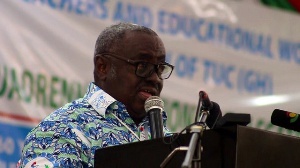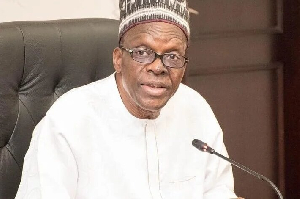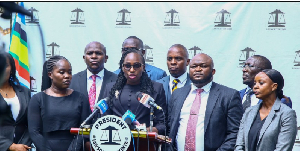The Teachers and Educational Workers Union (TEWU) has signed a new condition of service with the Ghana Education Service (GES) after the last one expired more than 10 years ago.
The Acting General Secretary of TEWU, Mr Mark D. Korankye, said when TEWU’s conditions of service expired about 13 years ago, and could not be reviewed, because of the implementation of a policy on the migration of all government employees onto the Single Spine Salary pay Structure.
Mr Korankye at a media briefing in Accra, said after the migration, TEWU took steps to review the conditions of service, which proposals were submitted by the union and have gone through several months of negotiations, which culminated with the signing on Nov 12, 2020, and subject to review after two years.
Mr Korankye said for now, TEWU members in the Ghana Education Service, have revised conditions of service document, with provisions for items including promotions, leaves, allowances, working hours and other related issues aimed at enhancing the welfare of the members.
According to him, “the signed document will be registered with the Chief Labour Officer, after which copies will be printed and distributed to the more than 30,000 members of the union who are with the Ghana Education Service, to guide them. This document will help to prevent situations where any different document will be used arbitrarily by various directors or heads of institutions in deciding what is due our cherished members.”
He indicated that TEWU leadership was aware that the Conditions of Service come with some responsibilities, “so we will take the opportunity to educate our members to be abreast of provisions in the condition of service, so they do not fall foul at any point in time, for management to take certain actions against them.”
He added that when the time comes to review the document after two years, they would take every step to ensure that the provisions always serve the best interest of the members.
The National Chairman of TEWU, Mr Peter K. Lumor, reminded members to appreciate the fact that, teachers and non-teaching staff are in different categories, and therefore their conditions of service would vary from those of other teacher unions.
He however indicated that there are some allowances that were negotiated at the Public Services Joint Standing Negotiating Committee that would apply to both teachers and non-teaching staff.
Mr Lumor also touched on the issue of non-basic allowance, being enjoyed by senior members like lecturers and senior members who are non-academic like the administrators of the universities, leaving out the Senior and Junior Staff, saying that development would not augur well for industrial harmony, as they all work in the same University.
Click to view details



Business News of Tuesday, 24 November 2020
Source: ghanaiantimes.com.gh

















